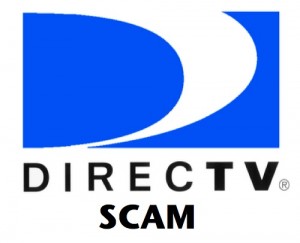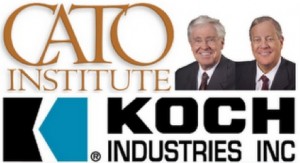As corporations continue to flee the embattled American Legislative Exchange Council, ALEC is struggling to stop the bleeding with a new a damage-control website called “IStandWithALEC.com,” that blames former Obama administrator Van Jones, George Soros and “Big Labor” for recent woes that have put the group on the hot seat. But as soon as ALEC put up its new site, the controversial group was met with yet another activist challenge: a hilarious, new competing one-page website with the very similar domain name, “IStandWithALEC.org,” that features pictures of Alec Baldwin and says, “I stand with Alec, not ALEC.” The site is filled with funny pictures of Alac Baldwin and statements contrasting how nice Alec Baldwin is and how mean ALEC is, like “Alec Baldwin created a scholarship for low income drama students…ALEC creates scholarships for corporations to funnel money to legislators,” and “Alec likes surfing the web naked,” but “ALEC wants you to pay 750% more for high-speed Internet.” The site asks visitors to “Join our efforts to stand up to front groups like ALEC!” The dueling websites make it clear that anti-ALEC activists aren’t cutting ALEC much slack these days, no matter what corporate PR strategy it tries to try and escape from its death spiral.
Tag: Corporations
Corporations, Corruption, Ethics, Grassroots advocacy, Lobbying, politics
Johnson & Johnson Ditches ALEC
by • • 0 Comments
Johnson & Johnson announced it is ending its membership in the American Legislative Exchange Council (ALEC), the embattled right-wing bill mill charged with spreading “shoot first” laws like the one that drew attention in the killing earlier this year of unarmed Florida teen Trayvon Martin. J&J is the 19th company to flee ALEC, and held a seat on ALEC’s “Private Enterprise Board.” The company made the announcement after a petition and phone campaign by People for the American Way Foundation, the Color of Change and other groups gathered more than half a million signatures asking corporations to end their support of ALEC’s agenda. ALEC has been a driving force behind the spread of voter suppression laws across the country, like the law that led to the purge of legitimate voters from Florida’s voter rolls. The U.S. Department of Justice filed a formal lawsuit against Florida today to stop the purge. J&J issued a statement saying it did not “condone legislative proposals that could serve, even inadvertently, to limit the rights or impact the safety of any individual,” and that it worked with ALEC only on “matters that help create a climate that supports jobs and innovation in the U.S.” Other companies and organizations that have dropped their ALEC memberships include Coca-Cola, Pepsico, Kraft, Wendy’s, Wal-Mart, Procter & Gamble, Yum! Brands, the Bill and Melinda Gates Foundation, Intuit, Mars, Inc., Arizona Public Service, and Kaplan.
Sources: Sources: People for the American Way, press release, June 12, 2012 and NJ.com, June 12, 2012
Corporations, Corruption, Equal rights, politics, Secrecy
ALEC is Using its Political Clout to Silence Dissent, Group Says
by • • 2 Comments
The American Legislative Exchange Council (ALEC) is reportedly pulling strings behind the scenes to shut down dissent at its annual meeting this summer. The Alliance for a Better Utah, a Utah progressive group, reports that after it reserved space at the Little America Hotel in Salt Lake City for July 25-28 — the same hotel and dates where ALEC will hold its 2012 annual meeting — the hotel called back and canceled the group’s reservation. The Alliance for a Better Utah says ALEC is using its political clout to get the hotel to refuse to rent rooms to other groups it doesn’t like during its annual conference. A hotel spokeswoman would not comment on the pulled reservation. ALEC has been under greater scrutiny since it was linked to the spread of “shoot first” laws like the one cited in the Trayvon Martin shooting in Florida. The good-government group Common Cause is seeking an investigation into the tax exempt status of ALEC, charging that ALEC is primarily a lobbying group and as such may be in violation of its tax exempt status.
Corporations, Ethics, Health, politics, Secrecy, Tobacco
Big Tobacco’s Effort to Exploit Terrorism to Get Legal Cover
by • • 0 Comments

Tobacco companies knew in 1953 that cigarettes caused cancer, but have long fought the inclusion of health warning labels on cigarettes, including this updated one.
This three-page document dated November 15, 2001, from Philip Morris’ online corporate document collection, argues that the federal government would be better off diverting funds from the U.S. Department of Justice’s 1999 lawsuit against the tobacco industry to concentrate on the fight against terrorism. The strategy leverages the September 11, 2001 terrorist attacks on the U.S. as a reason to stop the government’s investigation into the major American tobacco companies’ decades-long conspiracy to defraud the American people about the links between smoking and disease. On November 29, 2001 (just days after this document was written) the investigative organization Center for Public Integrity revealed that then-House Majority Whip and tobacco industry ally Tom DeLay (R-Texas) had done the bidding of the tobacco companies by quietly inserting a clause into the Financial Anti-Terrorism Act of 2001 (a bill rushed through Congress in the wake of the Sept. 11 attacks) shielding U.S. tobacco companies from foreign lawsuits that alleged cigarette smuggling and money laundering.
Corporations, Corruption, Grassroots advocacy, Lobbying, politics
Wal-Mart Dumps ALEC
by • • 20 Comments
 The retail giant Wal-Mart is joining other big businesses in ending its membership in the American Legislative Exchange Council (ALEC), the conservative corporate bill mill that helps spread “shoot first” laws like the one linked to the killing of Florida teenager Trayvon Martin. In a letter to ALEC, Wal-Mart Vice President Maggi Sans wrote, “Previously, we expressed our concerns about ALEC’s decision to weigh in on issues that stray from its core mission ‘to advance the Jeffersonian principles of free markets’” Sans said. “We feel that the divide between these activities and our purpose as a business has become too wide. To that end, we are suspending our membership in ALEC.” Other large corporations that have already left the organization include Coca Cola, Pepsi, Kraft Foods, Intuit and others.
The retail giant Wal-Mart is joining other big businesses in ending its membership in the American Legislative Exchange Council (ALEC), the conservative corporate bill mill that helps spread “shoot first” laws like the one linked to the killing of Florida teenager Trayvon Martin. In a letter to ALEC, Wal-Mart Vice President Maggi Sans wrote, “Previously, we expressed our concerns about ALEC’s decision to weigh in on issues that stray from its core mission ‘to advance the Jeffersonian principles of free markets’” Sans said. “We feel that the divide between these activities and our purpose as a business has become too wide. To that end, we are suspending our membership in ALEC.” Other large corporations that have already left the organization include Coca Cola, Pepsi, Kraft Foods, Intuit and others.
Corporations, Economics, Ethics, Ethnic/Minority, Grassroots advocacy, Media
Cookie-Cutter News Taking Over U.S. Media Market
by • • 0 Comments
If your local TV news broadcasts are all starting to sound the same from channel to channel, it’s because they are. A sneaky form of media consolidation is happening all over the country called “covert consolidation” in which different local TV newscasts use the exact same stories, the same video, same scripts and the same viewpoints, but do it under different “brands.” Covert consolidation occurs when a number of TV stations in the same area are owned by a single corporate entity. Broadcasters between the multiple stations will share their news operations to save money. Covert consolidation not only circumvents Federal Communications Commission (FCC) rules regarding ownership of stations, it also eliminates independent local journalism and the competition and diversity between stations that are the basis of a healthy democracy. Covert consolidation has been documented in 83 of the nation’s 210 news communities throughout the U.S. as TV stations across the country quietly merge newsrooms to cut costs — all at a time when broadcasters are already making record profits. Covert consolidation is also a factor blocking minorities and women from owning and operating TV stations. Big media companies are using loopholes and backroom deals to get around FCC rules prohibiting media consolidation. To draw attention to the problem of covert consolidation, FreePress.org has created an interactive map showing which stations across the U.S. are consolidated, and the severity of the consolidation. FreePress also offers a free “Change the Channels” tool kit (pdf) people can download to document and record media consolidation in their areas, and instructions for exposing covert consolidation in your own local community.
Main source: FreePress/SaveTheNews.org, May 29, 2012
Advertising, Corporations, Economics, Front groups, Health, Lobbying, Tobacco
Tobacco Companies Work in Secret to Defeat California’s Proposition 29
by • • 0 Comments
 A pitched battle is on over California’s Proposition 29, a measure on the statewide ballot to raise the cigarette tax by one dollar to fund smoking cessation and research on tobacco-related diseases. If enacted, the measure would increase California’s per-pack cigarette tax to $1.87 per pack. According to Maplight, the biggest donors favoring the tax are the American Cancer Society ($7.42 million), the Lance Armstrong Foundation ($1.5 million), the American Heart Association ($546,256), the American Lung Association ($412,086) and Michael R. Bloomberg ($500,000). Laurene Powell Jobs, the widow of Steve Jobs, kicked in $25,000 to support Prop. 29. But those amounts pale in comparison to the tidal wave of money tobacco companies and their allies are pouring into defeating the measure. Philip Morris (Altria) alone has given just over $24 million, Reynolds American, Inc. has put in $9.57 million, and U.S. Smokeless (also owned by Altria) has put in $1.5 million. The California Republican Party contributed $1.14 million to defeat the tax. As usual, tobacco companies are trying to hide their role in the campaign by refusing to speak to journalists, running ads without their fingerprints on them and fighting the campaign through a front group, “Californians Against Out-of-Control Taxes and Spending,” which is aligned with right wing, pro-business groups funded by millionaires and billionaires like Americans for Prosperity, FreedomWorks, the Chamber of Commerce and the Petroleum Marketers Association. Californians Against Out-of-Control Taxes and Spending doesn’t even list tobacco companies among the “No” campaign’s endorsers on the group’s website — as if tobacco companies weren’t involved.
A pitched battle is on over California’s Proposition 29, a measure on the statewide ballot to raise the cigarette tax by one dollar to fund smoking cessation and research on tobacco-related diseases. If enacted, the measure would increase California’s per-pack cigarette tax to $1.87 per pack. According to Maplight, the biggest donors favoring the tax are the American Cancer Society ($7.42 million), the Lance Armstrong Foundation ($1.5 million), the American Heart Association ($546,256), the American Lung Association ($412,086) and Michael R. Bloomberg ($500,000). Laurene Powell Jobs, the widow of Steve Jobs, kicked in $25,000 to support Prop. 29. But those amounts pale in comparison to the tidal wave of money tobacco companies and their allies are pouring into defeating the measure. Philip Morris (Altria) alone has given just over $24 million, Reynolds American, Inc. has put in $9.57 million, and U.S. Smokeless (also owned by Altria) has put in $1.5 million. The California Republican Party contributed $1.14 million to defeat the tax. As usual, tobacco companies are trying to hide their role in the campaign by refusing to speak to journalists, running ads without their fingerprints on them and fighting the campaign through a front group, “Californians Against Out-of-Control Taxes and Spending,” which is aligned with right wing, pro-business groups funded by millionaires and billionaires like Americans for Prosperity, FreedomWorks, the Chamber of Commerce and the Petroleum Marketers Association. Californians Against Out-of-Control Taxes and Spending doesn’t even list tobacco companies among the “No” campaign’s endorsers on the group’s website — as if tobacco companies weren’t involved.
Corporations, Energy, Environment, Fracking, Health, politics, Safety
Clean, Sustainable Energy vs. Fracking Colorado
by • • 0 Comments
A guest post by Michele Swensen
 The week prior to Senator Morgan Carroll’s May 2 introduction of SB 107 (The Fracking Safety Act) to the Senate Judiciary Committee, an oil drilling site near Windsor, Colorado, operated by Ranchers Exploration Partners based in Greeley, was issued a cease-and-desist order by the Colorado Oil and Gas Conservation Commission (COGCC), which declared an environmental emergency. The site, located in unincorporated Larimer County above the Ridge West residential subdivision, the Poudre River and a lake, was declared a public health hazard after the drilling rig became unstable and brought up potentially toxic solid waste from the landfill upon which it was positioned. The COGCC had issued a drilling permit in September 2010, and state health officials were satisfied that the company had moved the drilling site sufficiently away from the landfill, based on a June, 2011 six-foot test drill over the site. Ranchers Exploration plans to move the drilling rig yet again to another site on the same property, ostensibly away from the old landfill.
The week prior to Senator Morgan Carroll’s May 2 introduction of SB 107 (The Fracking Safety Act) to the Senate Judiciary Committee, an oil drilling site near Windsor, Colorado, operated by Ranchers Exploration Partners based in Greeley, was issued a cease-and-desist order by the Colorado Oil and Gas Conservation Commission (COGCC), which declared an environmental emergency. The site, located in unincorporated Larimer County above the Ridge West residential subdivision, the Poudre River and a lake, was declared a public health hazard after the drilling rig became unstable and brought up potentially toxic solid waste from the landfill upon which it was positioned. The COGCC had issued a drilling permit in September 2010, and state health officials were satisfied that the company had moved the drilling site sufficiently away from the landfill, based on a June, 2011 six-foot test drill over the site. Ranchers Exploration plans to move the drilling rig yet again to another site on the same property, ostensibly away from the old landfill.
The COGCC’s field inspection of the drilling site concluded that Ranchers Exploration failed to follow “most best management practices for drilling sites,” e.g., failing to build secondary containment for “storm water runoff, sewage, chemicals and other toxins that might flow off the drilling pad.”
Corporations, Corruption, Ethics, Grassroots advocacy, politics
CleanSlateNow: Medicine for America’s Broken Democracy
by • • 0 Comments
 Throughout his 16 years in the Colorado state legislature, former Colorado Senate Majority Leader Ken Gordon saw first-hand how corporate money is killing government, and it alarmed him. Gordon saw legislators failing to represent the people who elected them, and instead represent the big money donors who kept them in office. Now Gordon is on a mission to change our broken system.
Throughout his 16 years in the Colorado state legislature, former Colorado Senate Majority Leader Ken Gordon saw first-hand how corporate money is killing government, and it alarmed him. Gordon saw legislators failing to represent the people who elected them, and instead represent the big money donors who kept them in office. Now Gordon is on a mission to change our broken system.
Ken Gordon came of age in Michigan during the U.S. war in Vietnam. The experience of the war impressed upon him the need to become active when you see something terrible going on around you. “Clearly government was doing something awful,” he says of the Vietnam war, noting that between one and two million people lost their lives because of America’s military involvement in Vietnam. Gordon did everything he could to help end the war: he marched in anti-war rallies in Washington and in Ann Arbor, Michigan. The wave of anti-war protests that swept the country eventually pushed the American government to end the war, and the experience showed Gordon the power people wield when enough of them get behind a cause.
Corporations, Corruption, Ethics, Media
British MPs: Media Mogul Rupert Murdoch Unfit to Lead Media Conglomerate
by • • 0 Comments
Members of a British Parliament committee have declared 81 year old media mogul Rupert Murdoch, owner of News Corporation, the Wall Street Journal and Fox News, unfit to lead a major international company. A bipartisan House of Commons parliamentary committee reached the conclusion after issuing a detailed, 125 page report on May 1, 2012, about a phone hacking scandal involving Murdoch’s UK newspaper, the News of the World. The report accuses Rupert Murdoch, his son James and their media company News International, of purposely misleading the government’s investigative committee, intentionally covering up the truth about their paper’s phone hacking scandal and failing to conduct a proper internal investigation of the matter. The MPs wrote that the Murdochs’ “instinct throughout, until it was too late, was to cover up rather than seek out wrongdoing and discipline the perpetrators, as they also professed they would do after the criminal convictions. In failing to investigate properly, and by ignoring evidence of widespread wrongdoing, News International and its parent News Corporation exhibited wilful blindness, for which the companies’ directors — including Rupert Murdoch and James Murdoch — should ultimately be prepared to take responsibility.” The MPs found James Murdoch’s “lack of curiosity” and “wilful ignorance” about the scandal “astonishing.” Page 70 of the report states, “We conclude, therefore, that Rupert Murdoch is not a fit person to exercise the stewardship of a major international company.”
Consumer advocacy, Corporations, Corruption, Ethics, Lobbying, politics
BREAKING: South Carolina State Senator Ted Vick (D) Resigns from ALEC
by • • 0 Comments
On Monday, April 23, 2012, State Rep. Boyd Brown of South Carolina sent an email to all SC state legislators in which he urged his fellow legislators to leave the American Legislative Exchange Council (ALEC). Brown called ALEC a Koch-funded special interest group that wields too much power and causes legislators to neglect their constituents. Brown wrote that money continues to “be the cancer on the body politic, and with ALEC it has taken over.” He called “scholarships” through which ALEC funds legislators’ trips to conferences at fancy resorts a “pay-for-play scheme.” Brown’s plea had an effect. Today, April 24, South Carolina State Rep. Ted Vick (D) announced he is resigningfrom ALEC. In a public statement regarding his decision, Vick wrote in part, “Over the years, ALEC has steadily drifted to the right and away from its original purpose . . . I have found myself voting against their legislation more and more . . . Recent revelations concerning ALEC’s funding sources from radical elements
have proven to be the final straw for me. ALEC has become too partisan and too extreme. . . . ALEC has become part of the problem and I can no longer be a member of this organization.” In press releases on its website, ALEC maintains that it has been the target of an organized intimidation campaign and harassment tactics carried out by “liberal front groups” that are simply attacking ALEC’s free market policies, without addressing any of issues raised by the groups regarding problems with the legislation ALEC has been spreading.
Corporations, Corruption, Ethics, Front groups, Grassroots advocacy, Lobbying, politics
ALEC Fingered for Lobbying
by • • 0 Comments
 A front page article in the New York Times on April 21, 2012 exposes the American Legislative Exchange Council (ALEC) as a stealth business lobbyist that pushes pro-business, anti-public interest legislation in state capitols from coast to coast. ALEC is a little-known, non-profit organization that brings state legislators together with corporations to draft model legislation favoring businesses. The group has a sophisticated system for shaping state-level legislation. Legislators pay a nominal $50 fee annually to join ALEC, but corporations pay dues ranging from $7,000 to $25,000 per year, which affords them guaranteed access to legislators at upscale events like cigar receptions, conferences and pigeon shoots. Businesses use these opportunities to promote new laws to legislators benefiting the companies’ bottom lines. ALEC claims to be bipartisan, but of 104 leadership positions in the organization, Republicans fill all but one, and the policies ALEC promotes are almost exclusively right-wing. ALEC’s role as a driving force behind the wave of “Stand Your Ground” or “Shoot First” laws sweeping the country has made the group a target of public anger.
A front page article in the New York Times on April 21, 2012 exposes the American Legislative Exchange Council (ALEC) as a stealth business lobbyist that pushes pro-business, anti-public interest legislation in state capitols from coast to coast. ALEC is a little-known, non-profit organization that brings state legislators together with corporations to draft model legislation favoring businesses. The group has a sophisticated system for shaping state-level legislation. Legislators pay a nominal $50 fee annually to join ALEC, but corporations pay dues ranging from $7,000 to $25,000 per year, which affords them guaranteed access to legislators at upscale events like cigar receptions, conferences and pigeon shoots. Businesses use these opportunities to promote new laws to legislators benefiting the companies’ bottom lines. ALEC claims to be bipartisan, but of 104 leadership positions in the organization, Republicans fill all but one, and the policies ALEC promotes are almost exclusively right-wing. ALEC’s role as a driving force behind the wave of “Stand Your Ground” or “Shoot First” laws sweeping the country has made the group a target of public anger.
Corporations, Ethics, Grassroots advocacy, politics, Violence
ALEC, Embattled, Ditches its Public Safety Task Force
by • • 0 Comments
 The American Legislative Exchange Council, the group that has come under attack recently for its proliferation of “Stand Your Ground” gun laws, announced today that it is eliminating its Public Safety and Elections Task force, the subcommittee responsible for creating and pushing voter suppression laws, liberal or “Shoot First” gun laws and other controversial legislation that has drawn more scrutiny to the organization. ALEC’s move to dump the task force comes shortly after ten major corporations fled the group. ALEC has been at the heart of the spread not only of controversial “Shoot First” gun laws, but also of laws that attack unions, divert taxpayer funds to private schools, “papers, please” immigration laws and other controversial laws. ALEC explained the dumping of its Public Safety and Elections Task Force by saying it was eliminating the group to focus more strongly on economic issues that “spur competitiveness and innovation and put more Americans back to work.” An ALEC spokeswoman said the organization would no longer work on issues pertaining to elections or guns. The elimination of ALEC’s Public Safety and Elections Task Force is a victory for grassroots groups like ColorOfChange.org that have been campaigning to highlight ALEC’s role in spreading legislation drafted by corporations.
The American Legislative Exchange Council, the group that has come under attack recently for its proliferation of “Stand Your Ground” gun laws, announced today that it is eliminating its Public Safety and Elections Task force, the subcommittee responsible for creating and pushing voter suppression laws, liberal or “Shoot First” gun laws and other controversial legislation that has drawn more scrutiny to the organization. ALEC’s move to dump the task force comes shortly after ten major corporations fled the group. ALEC has been at the heart of the spread not only of controversial “Shoot First” gun laws, but also of laws that attack unions, divert taxpayer funds to private schools, “papers, please” immigration laws and other controversial laws. ALEC explained the dumping of its Public Safety and Elections Task Force by saying it was eliminating the group to focus more strongly on economic issues that “spur competitiveness and innovation and put more Americans back to work.” An ALEC spokeswoman said the organization would no longer work on issues pertaining to elections or guns. The elimination of ALEC’s Public Safety and Elections Task Force is a victory for grassroots groups like ColorOfChange.org that have been campaigning to highlight ALEC’s role in spreading legislation drafted by corporations.
Main source: American Legislative Exchange Council press release, April 17, 2012
Children, Corporations, Corruption, Environment, Ethics, Health, Safety, Tobacco
Philip Morris and Monsanto Sued over Birth Defects in Tobacco Farmers’ Children
by • • 1 Comment
Tobacco farmers in Argentina filed a lawsuit (pdf) against Monsanto and Philip Morris for requiring them to use herbicides and pesticides that caused a high rate of severe birth defects among their children. The farmers charge that Philip Morris and the subsidiary companies that bought their crops required the farmers to stop growing their native tobacco grow a new kind of tobacco instead that Philip Morris uses in its cigarette formulation for the North and South American markets. The new tobacco they had to grow required more pesticides, and the farmers had to use excessive amounts of Monsanto’s glyphosate-based herbicide Roundup — but the defendant companies did not warn them about the dangers of the herbicide, or provide the farmers with safety information about the chemical or any protective gear to wear when applying it.
Corporations, Front groups, Health, Tobacco
Transnational Tobacco Companies Target Poor Countries
by • • 0 Comments
A new study reveals PR strategies transnational tobacco companies use behind the scenes to derail, delay and undermine public health policies in low- and middle-income countries. The authors uncovered six core strategies tobacco companies use in Thailand to interfere in tobacco control policymakin: (1) doing business with “two faces,” (2) working to influence people in high places, (3) “buying” advocates inside grassroots organizations, (4) putting up deceptive fronts, (5) using intimidation, and (6) undermining controls on tobacco advertising, promotion and sponsorship. The companies often apply several of the strategies simultaneously. Public health advocates in poorer countries have successfully counteracted these strategies by remaining vigilant to spot them, excluding tobacco companies from policymaking, restricting cigarette sales, keeping up pressure on the companies and working to assure adequate resources are dedicated to enforcing tobacco control regulations. The entire text of the article is available free in PDF form here.
Source: International Journal of Environmental Research and Public Health, March 27, 2012 (pdf)
Consumer advocacy, Corporations, Ethics, Marketing, Media
DirecTV’s Disappearing-Channels Scam
by • • 2 Comments
 Thinking of subscribing to DirecTV? Think again. DirecTV pulls a fast one on subscribers to push them into more expensive packages after they sign up. Here’s how it works: Like all cable and satellite TV providers, DirecTV offers different levels of programming that include specific channels. New subscribers select the package with the channels they want — or so they think. A few months after you subscribe to their service, DirecTV pulls some of the channels originally included in your package. All of a sudden when you try to watch those channels, you get a “Channel Not Purchased” message on your screen. When you call DirecTV to tell them about the suddenly-missing channels, they say they’ve taken them out of your package and you’ll need to upgrade to a pricier package to get them back. DirecTV makes little effort to notify subscribers in advance of this change. They don’t announce the changes, for example, in any of the regular emails they send customers announcing special deals and “free” weekends of premium channels. They don’t add any more channels to your package to make up for the ones they’ve removed, and they don’t compensate customers financially for the loss by adjusting your bill for the channels you no longer get. On their website, they explain the loss by saying they took the channels away to help “manage rising programming costs.” Their website also says, “At DIRECTV, we strive to bring you the best entertainment experience available.” All you have to do is subscribe, or peruse the comments at CustomerServiceScoreboard.com/DIRECTV to find out that DirecTV pulls this scam with relative frequency. DirecTV also charges you $10.00/month extra to get a high-definition receiver, where most other pay TV services provide HD to all customers as part of the deal.
Thinking of subscribing to DirecTV? Think again. DirecTV pulls a fast one on subscribers to push them into more expensive packages after they sign up. Here’s how it works: Like all cable and satellite TV providers, DirecTV offers different levels of programming that include specific channels. New subscribers select the package with the channels they want — or so they think. A few months after you subscribe to their service, DirecTV pulls some of the channels originally included in your package. All of a sudden when you try to watch those channels, you get a “Channel Not Purchased” message on your screen. When you call DirecTV to tell them about the suddenly-missing channels, they say they’ve taken them out of your package and you’ll need to upgrade to a pricier package to get them back. DirecTV makes little effort to notify subscribers in advance of this change. They don’t announce the changes, for example, in any of the regular emails they send customers announcing special deals and “free” weekends of premium channels. They don’t add any more channels to your package to make up for the ones they’ve removed, and they don’t compensate customers financially for the loss by adjusting your bill for the channels you no longer get. On their website, they explain the loss by saying they took the channels away to help “manage rising programming costs.” Their website also says, “At DIRECTV, we strive to bring you the best entertainment experience available.” All you have to do is subscribe, or peruse the comments at CustomerServiceScoreboard.com/DIRECTV to find out that DirecTV pulls this scam with relative frequency. DirecTV also charges you $10.00/month extra to get a high-definition receiver, where most other pay TV services provide HD to all customers as part of the deal.
Front groups, politics
Billionaire Koch Brothers File Lawsuit to Wrest Control of Cato Institute
by • • 1 Comment
 Charles and David Koch — the billionaire industrialist brothers who already exert out-sized influence over American politics — are suing (pdf) to gain direct control over the Cato Institute, one of the country’s leading libertarian think tanks. Cato is a non-profit organization incorporated under Kansas law, which — unusually — allows it to be owned by a board of shareholders. Until recently Cato’s board consisted of four people — founder Ed Crane, Charles Koch, David Koch, and economist William Nikasen. Each held 16 shares valued at $1 per share. When Nikasen passed away in October, 2011, his shares fell to his widow, Kathryn Washburn, who has not yet offered to sell them to the other shareholders, as required by Kansas law. The Kochs are suing Washburn and the Cato Institute to force her to sell her shares to the other shareholders, which would give the Kochs a shareholder majority, and thus definitive control over Cato. The Kochs maintain that this is not a hostile takeover, (pdf) but the chair of Cato’s board, Bob Levy, said the Kochs — who now have the power to appoint half of the board — have been placing “operatives” on the board who are pushing Cato towards supporting Republican party ideals rather than libertarian ideals. Cato’s traditional libertarian stances on issues have often differed with Republican positions, for example by supporting same-sex marriage and hands-off foreign intervention and immigration policies. These more truly libertarian (and liberal) stances led to a falling-out between the Kochs and Cato over the years. But now the Kochs see their opportunity to gain more control over Cato. According to some close to the dispute, the Kochs want to use Cato to create more “intellectual ammo” for their front group, Americans for Prosperity, to use to defeat Obama in the 2012 general election. Some close to the dispute also say that if the Kochs successfully gain control of Cato, it will ruin the Institute’s credibility and lead to its demise.
Charles and David Koch — the billionaire industrialist brothers who already exert out-sized influence over American politics — are suing (pdf) to gain direct control over the Cato Institute, one of the country’s leading libertarian think tanks. Cato is a non-profit organization incorporated under Kansas law, which — unusually — allows it to be owned by a board of shareholders. Until recently Cato’s board consisted of four people — founder Ed Crane, Charles Koch, David Koch, and economist William Nikasen. Each held 16 shares valued at $1 per share. When Nikasen passed away in October, 2011, his shares fell to his widow, Kathryn Washburn, who has not yet offered to sell them to the other shareholders, as required by Kansas law. The Kochs are suing Washburn and the Cato Institute to force her to sell her shares to the other shareholders, which would give the Kochs a shareholder majority, and thus definitive control over Cato. The Kochs maintain that this is not a hostile takeover, (pdf) but the chair of Cato’s board, Bob Levy, said the Kochs — who now have the power to appoint half of the board — have been placing “operatives” on the board who are pushing Cato towards supporting Republican party ideals rather than libertarian ideals. Cato’s traditional libertarian stances on issues have often differed with Republican positions, for example by supporting same-sex marriage and hands-off foreign intervention and immigration policies. These more truly libertarian (and liberal) stances led to a falling-out between the Kochs and Cato over the years. But now the Kochs see their opportunity to gain more control over Cato. According to some close to the dispute, the Kochs want to use Cato to create more “intellectual ammo” for their front group, Americans for Prosperity, to use to defeat Obama in the 2012 general election. Some close to the dispute also say that if the Kochs successfully gain control of Cato, it will ruin the Institute’s credibility and lead to its demise.
Main sources: The Volokh Conspiracy, March 3, 2012, and Charles Rowley’s blog, March 4, 2012
Consumer advocacy, Economics, Insurance
Switch to a Good-Faith Insurer
by • • 0 Comments
 Everyone who buys insurance should visit the website Fight Bad-Faith Insurance Companies (FBIC), at BadFaithInsurance.org. FBIC lists insurers who chronically screw consumers by discounting, lowballing, fudging and delaying payment of legitimate claims. FBIC examines formal complaints lodged against insurers and reviews documents obtained through litigation against insurers to sort out good insurers from bad. FBIC finds that many well known insurers frequently act unethically and illegally. Consumers have virtually no recourse against these companies either, because government agencies that regulate the insurance industry are not only toothless and underfunded, but they are also often staffed by former insurance people.
Everyone who buys insurance should visit the website Fight Bad-Faith Insurance Companies (FBIC), at BadFaithInsurance.org. FBIC lists insurers who chronically screw consumers by discounting, lowballing, fudging and delaying payment of legitimate claims. FBIC examines formal complaints lodged against insurers and reviews documents obtained through litigation against insurers to sort out good insurers from bad. FBIC finds that many well known insurers frequently act unethically and illegally. Consumers have virtually no recourse against these companies either, because government agencies that regulate the insurance industry are not only toothless and underfunded, but they are also often staffed by former insurance people.
Even worse, bad-faith insurers dominate the market. FBIC’s list of the top 50 bad-faith insurers contains many of the same insurers that advertise constantly on television. The worst company, State Farm (which FBIC rates “DO NOT BUY” in big, red letters), is followed closely by The Hartford and Allstate, which now owns E-surance. FBIC rates all three with a big, red “DO NOT BUY.” Liberty Mutual, Progressive, Geico, Mercury, UnitedHealth, WellPoint and Blue Cross Blue Shield are close behind. Fortunately, FBIC also lists the top 50 good-faith insurers — a shrinking list of companies that, for the most part, act ethically and responsibly toward customers and conduct business in accordance with the law. The list of good-faith insurers is topped by companies you’ve probably never heard of: Amica, Allianz and Chubb. Maybe these companies don’t carpet-bomb us with ads because their reputations are good enough to provide them with all the business they need.
After reading FBIC’s website, my husband and I switched our homeowner and vehicle insurance from Farmers to Chubb. We were surprised to find Chubb offered much higher quality insurance for about the same money. For example, in the event that you total your car, Chubb pays enough to go out buy a brand new car exactly like the one you had, instead of just giving you blue book for your wrecked one. Rental cars are covered in full under Chubb’s policy, and if you get personal liability coverage, Chubb provides $50,000 worth of identity theft coverage, including paying professionals to help you get your identity back and deal with problems caused by the theft.
Insurance is one area where you can vote with your money. Read Fight Bad Faith Insurance Companies’ reviews and move your business to an insurance company that treats consumers fairly, abides by the law and deals in good faith.








